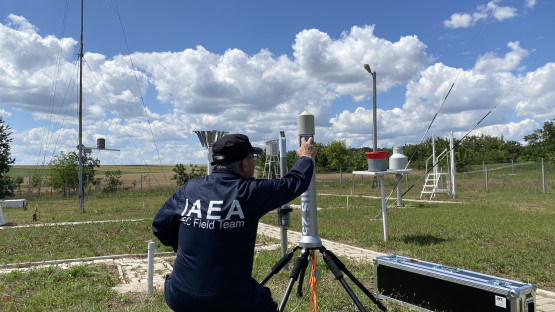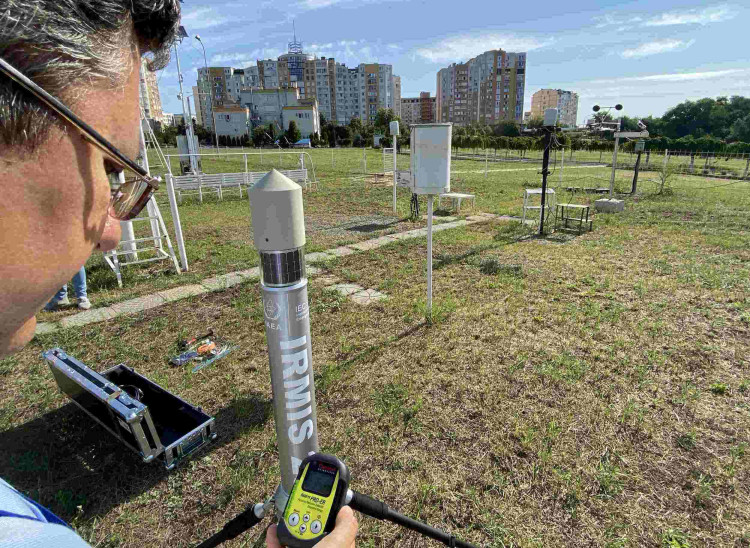By leveraging the IAEA's expertise, Moldova strengthens its ability to monitor radiation levels, detect anomalies, and respond swiftly to potential nuclear or radiological incidents.
Moldova recognizes the substantial benefits that the loan of IRMIS stations brings to the country, which was highlighted by Ionel Balan, Director, Agency for Regulation of Nuclear and Radiological Activities of Moldova. He said: "The installation of these advanced monitoring systems will greatly enhance our ability to ensure the safety of our citizens and environment. The real-time data provided by the IRMIS stations will enable us to respond promptly to any radiological incidents, safeguarding the well-being of our people."
Together with the Unified System for Information Exchange in Incidents and Emergencies (USIE), the IAEA IRMIS provides authorities with 24/7 access to the collected data and the necessary quantitative technical information to support a comprehensive assessment and prognosis of the radiological situation.
With the participation of Moldova, the radiation monitoring information system network has expanded to 49 countries since its creation in 2016. Currently Australia, Austria, Belarus, Belgium, Bosnia and Herzegovina, Bulgaria, Canada, Croatia, Cyprus, Czech Republic, Denmark, Estonia, Finland, France, Germany, Greece, Hungary, Iceland, Indonesia, Iraq, Ireland, Italy, Japan, Jordan, Latvia, Lithuania, Luxembourg, Malaysia, Malta, Moldova, Netherlands, North Macedonia, Norway, Poland, Portugal, Romania, Russian Federation, Saudi Arabia, Serbia, Slovakia, Slovenia, Spain, Sweden, Switzerland, Thailand, Türkiye, Ukraine, United Kingdom and United States of America are members of IRMIS.
“Experience from previous emergencies has shown us that arrangements for information sharing on radiation levels are essential. If arrangements are not in place, it can take considerable time to receive information and to process it into useful formats. IRMIS establishes permanent, proven and testable arrangements for the sharing of radiation monitoring data worldwide, so that governments can take well-informed decisions to protect people and the environment,” said Florian Baciu, the IAEA Response System Coordinator.








